ACAMH Website Content Types
-
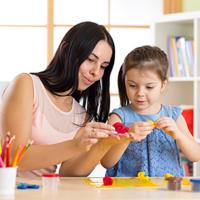
How much do we really know about ‘Theraplay’ for young children?
‘Theraplay’ is an intervention that aims to enhance attachment, self-esteem and trust in others for children with behavioural, emotional or developmental difficulties. The intervention, founded on attachment theory,1 harnesses natural and playful interactions between caregivers and children to develop healthy and positive relationships.
Read more -
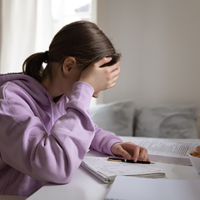
Which disorders precede the development of mood disorders in young people?
Mood disorders such as bipolar disorder (BPD) and major depressive disorder (MDD) typically emerge in childhood or adolescence. Now, researchers in Switzerland, the USA and Canada have investigated whether certain other mental health disorders precede the onset of mood disorders
Read more -
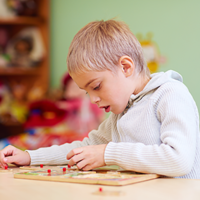
Cognitive inflexibility contributes to both externalising and internalising difficulties in ASD
Children with autism spectrum disorder (ASD) commonly experience internalising and externalising symptoms, but the underlying cognitive mechanisms are unclear. In their latest study published in the Journal of Child Psychology and Psychiatry, Ann Ozsivadjian and colleagues examined the role of three cognitive factors that might contribute to these difficulties.
Read more -

Voice-hearing can be positive for some young people
Researchers in Manchester have described the diverse forms and functions of voices heard by young people. Sarah Parry and Filippo Varese collected demographic, contextual and qualitative data from 68 adolescents (13-18 years old) from around the world who had direct experience of voice-hearing.
Read more -

How effective is medication for ADHD symptoms in children with ASD?
Clinically significant attention-deficit/hyperactivity disorder (ADHD) symptoms are common and impairing in children with autism spectrum disorder (ASD).1 Moreover, ADHD is the most common co-occurring mental health diagnosis driving increased rates of medication use in children with ASD.
Read more -

Do brain function abnormalities lead to substance use, or vice versa?
New research has, for the first time, investigated the direction of links between brain function and substance use throughout adolescence. Jungmeen Kim-Spoon and colleagues studied 167 adolescents who were assessed annually for four years from 13-14 years old.
Read more -

Do children with social anxiety disorder benefit from social skills training?
Social anxiety disorder (SAD) in children can be difficult to treat, as evidenced by the varied outcomes reported post-treatment.1,2 Although childhood treatments for SAD commonly involve at least some social skills training,3 it isn’t clear whether children with SAD have particular difficulties with social skills. There is therefore a need to better establish whether social skills are an effective target for treating SAD.
Read more -
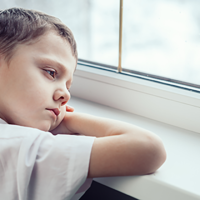
Sleep problems from infancy are linked with impaired well-being in middle childhood
Researchers in the USA and Australia have found that sleep disturbances from early childhood are associated with reductions in well-being at age 10-11 years old. Ariel Williamson and colleagues came to this conclusion after analysing data from >5,000 children enrolled in the Longitudinal Study of Australian Children – Birth Cohort.
Read more -
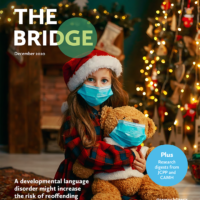
December 2020 – The Bridge
Welcome to the December 2020 issue of The Bridge. This year has been extremely challenging for our field, as we’ve needed to understand and address the impact of the coronavirus pandemic on young people’s mental health.
Read more -

Do ADHD and ASD symptoms have similar characteristics in childhood and young adulthood?
Lucy Riglin and colleagues in the UK have investigated whether ADHD and ASD traits in young adulthood show similar characteristics to those reported in childhood.
Read more